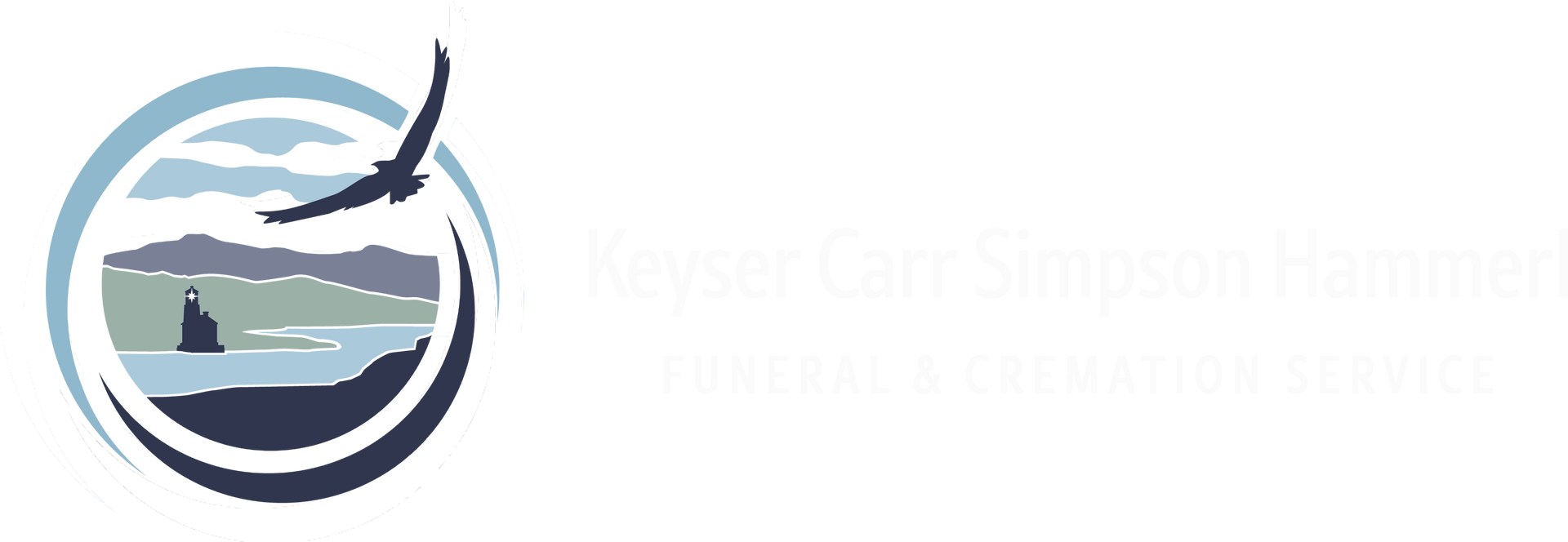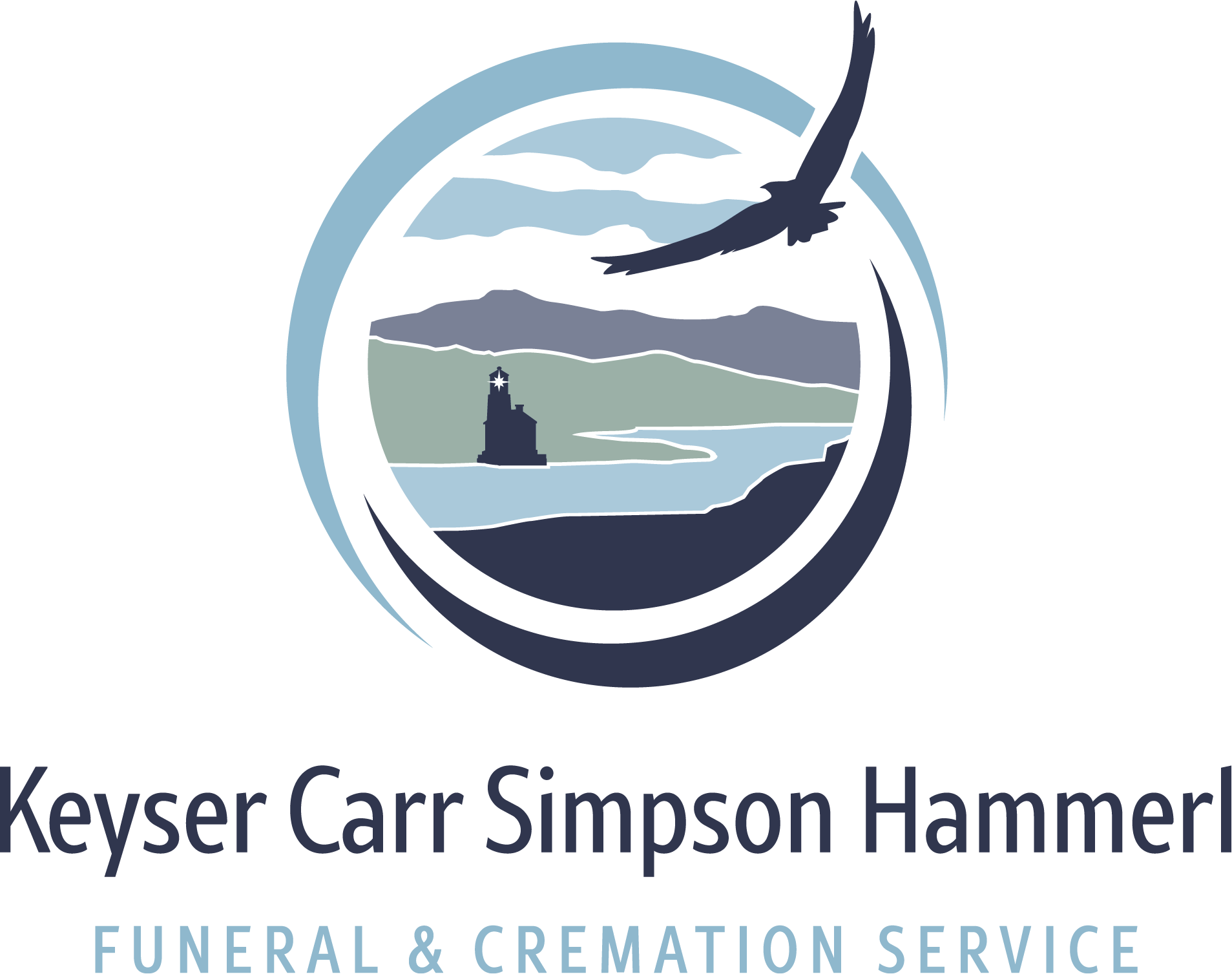Jewish Funeral Services
The Simpson-Hammerl Funeral Home has served the needs of the entire Jewish community since 1953. We are experienced in all aspects of traditional preparations, services and burials.
Our facilities are spacious and reflect a proper tone for a Jewish ceremony. Our staff personally handles and conducts all aspects of notifications to Rabbi, Chevra Kadisha (if requested), cemetery, burial society, etc.
The following specific information is often relevant at the time of death:
- Hebrew Name
- Father's Hebrew Name
- Mother's Hebrew Name
Decisions also need to be made with regard to:
- Taharah (see Chevra Kadisha of Greater Kingston, below)
- Tallit (prayer shawl for men)
- Do you prefer a funeral home (chapel) service, service at the synagogue and/graveside?
- Preference for Rabbi and/or Cantor
- Casket bearer preferences
- Newspaper notices should be placed in which cities?
- Cemetery information
- Burial society or contact person
- Preference for memorial contributions
Chevra Kadisha of Greater Kingston
It is the responsibility of the Chevra Kadisha to prepare the deceased for burial according to traditional practice. Chevra Kadisha literally means "Holy Society", and refers to the holiness of spirit with which these duties are performed. Members of the Chevra Kadisha who perform the ritual tasks do so with a sense of responsibility to serve the needs of the community, and derive no personal or monetary gain. The Chevra Kadisha of Greater Kingston provides the Jewish community with the rites of traditional Jewish burial. Functioning as a Jewish Burial Society, volunteer members of the Chevra Kadisha work in cooperation with Simpson-Gaus Funeral Home at the time of need.
It is said that the act of caring for the deceased is one of the highest mitzvot that a person can perform since it is an act of righteousness and loving kindness that the recipient can never return. It is in that spirit that many of their volunteers have chosen to learn and participate in the traditional rites of the Chevra Kadisha.
For more information call Mr. Bernie King-Smith (845) 336-6373 (evenings). To find area synagogues visit the Jewish Federation Newspaper Notices.
If desired, obituaries will be composed and placed in designated newspapers. An obituary is a paid item that will be listed on your funeral purchase agreement. Generally, information regarding survivors, services, calling hours, donations, etc. are incorporated into the obituary, and it usually appears in the newspaper up to the day of the funeral. If there are any specific items you would like to add or omit, i.e. photo, please let us know.
The Daily Freeman is our largest area newspaper and is published seven days a week. The Times Herald Record is also a well-read area newspaper. The funeral home must have notices called in to the paper by late afternoon the day before it is to be published.
We provide the service of placing newspaper notices in any area of the country should previous residence or family ties be considered. A fee may be charged by the newspaper.
Preparation of the Body
The Taharah (purification) is performed by the Chevra Kadisha consisting of Jewish men and women who are knowledgeable in the area of traditional duties and can display proper respect for the deceased. In addition to the physical cleansing and preparation of the body for burial, they also recite the required prayers asking Almighty G-d for forgiveness for any sins the deceased may have committed, and praying that the All-Merciful may guard him/her and grant him/her eternal peace.
Jewish tradition recognized the democracy of death. It therefore demands that all Jews be buried in the same type of garment. A simple, handmade, white shroud (available from the funeral home) symbolizes purity, simplicity, and dignity.
A Jewish man is then wrapped in his tallit-regardless of whether or not it is expensive, or how new it is. If a tallit is not available to the family, the funeral home has a supply for burial purposes.
Earth from the Holy Land is placed in the casket with the deceased.
Should the synagogue not have an organized Chevra Kadisha, the Chevra Kadisha of Greater Kingston, Inc. will be called by our funeral home to promptly tend to the prescribed rituals. A deceased woman is taken care of by women and a deceased man by men.
Traditionally the practice of embalming is prohibited (except for special circumstances.) Therefore, the deceased should remain in refrigeration until Taharah.
In the event of an autopsy or embalming, there may be problems with performing the Taharah; Rabbi should be consulted.
Preparation of the Body
The most striking Jewish expression of grief is the rending of garments by the mourner prior to the funeral service. Seven relations are involved: son, daughter, father, mother, brother, sister and spouse. They must be adults, above the age of thirteen. There are certain circumstances that allow others to partake.
The Eulogy
The eulogy is a significant focus of the funeral service. One of the most important obligations of mourners is to provide for this eulogy. The eulogy is almost always spoken at the chapel or, occasionally, at the cemetery prior to burial. In order to make a dignified and honest presentation, the Rabbi will have to know certain basic facts of the life of the deceased. Be prepared to tell him all of the departed's good qualities and accomplishments. The Rabbi will want to know the relationship of the deceased with the family, how he earned his livelihood, what was his educational background, organizational involvements, memberships and charities the deceased participated in, the extent of his observance of Judaism, and his identification with the Jewish people.
This discussion with the Rabbi should be held by one close to the deceased, but who is not so emotionally exercised that he cannot impart the necessary information.
Casket-Bearers
Many families prefer to have friends or other family members assist in carrying the casket, rather than funeral home staff. Those selected for this tribute should be physically and emotionally able. In regard to safety, at least six bearers are preferred. Their duty will be to carry the casket from the funeral home, at the place of religious service, and onto the gravesite.
If there are individuals unable to carry the casket, they should be designated as "Honorary Bearers." They will walk with the casket while the casket-bearers carry it.
Unless otherwise specified, bearers should arrive at the same time as the family. If a synagogue service will be conducted, bearers are encouraged to drive their own cars so they can be with their families. They will be fully instructed as to their responsibilities on the day of the funeral. We will ask you for the completed list prior to the funeral.
After the Funeral
Some families, after the funeral, have a gathering at a home, restaurant or hall. Please let us know if you wish us to make an announcement at the cemetery inviting those attending to this gathering.
The Shiva Period
The seven days of mourning begin immediately after interment. They end on the morning of the seventh day after burial, immediately following the shacharit (morning) service. In computing the seven days, Jewish tradition follows the principle of considering a fraction of a day (at the beginning and the end) as a complete day. Thus, the day of burial is considered the first day. Thus, too, the seventh day is considered a full day even though mourning was observed for only a short time after sunrise. Two fractional days of mourning are counted as two whole days of shiva, The house of mourning must be prepared with a candle for the return of the mourners from the cemetery. The candle, in memory of the deceased, should be kindled and kept burning for the entire seven-day period of shiva. It is kindled upon returning from the cemetery. The shiva candle will be provided by us prior to the service and given to you at the cemetery.
Wood shiva benches, upon request, will be provided by the funeral home as well. These will be locally delivered to the home where shiva is to be observed. Please call us when you wish us to pick them up.
We recommend that Rabbi should be consulted regarding shiva and all related observances.
The Sh'loshim Period
The following principles are used in computing the thirty-day period:
- Counting starts from the date of burial, not the date of death.
- Partial days are to be considered full days.
- Sh'loshim ends after morning services on the 30th day after burial.
Cemetery Charges
Cemeteries require their charges i.e. opening fees, overtime, weekend or winter rates, to be paid in full at the time of burial. In most instances, it is not necessary for you to go to the cemetery before the day of the funeral. Your check for the charges may be made payable to the cemetery and given to us. We will present the check along with other required documents to the cemetery superintendent on the day of the funeral.
Should you need to purchase a grave or plot (multiple graves,) we will go with you to the cemetery of your choice to assist in the selection. Grave costs and opening charges vary. Many local cemeteries do have overtime charges for late-in-the-day and weekend burials. We have listings of all.
Montrepose Cemetery in Kingston has several sections controlled by congregations and burial societies. Each synagogue and society has its own rules and regulations. We have a listing of individuals to contact for information.
The Monument and Unveiling
Erecting a monument is a very ancient tradition. There are certain guidelines suggested by Jewish law regarding when the stone should be purchased, when the monument may be erected, inscription, style, and other involvements.
Call us when you are ready to plan for a foot marker, monument, or other memorials. Simpson-Hamemrl Funeral Home is well versed in all aspects of monuments and monument engravings for Jewish families. We are familiar with cemetery and synagogue requirements and will prepare a sketch for your review. This may include Hebrew name, Hebrew date of death, other traditional Hebrew sentiments, as well as English names, dates and sentiments. Call us to discuss your monument needs.
The service of commemoration or unveiling is a formal dedication to the monument. It is customary to hold the unveiling within the first year after death. It may be held at any time between the end of shiva and the yahrzeit.
After the funeral, you may consider what must be done at the cemetery regarding a monument. If you already have a stone on the plot, we can help arrange to have the name, date, etc. engraved. In most cases, we can have the monument dealer letter the stone at the gravesite.
Should you need to purchase a monument or grave marker, give us a call. We also have brochures and other useful advice on selecting a monument.
Temporary grave markers are available from our funeral home. This permits the grave to be properly marked on the day of burial. The name and years of birth and death are customized.
Memorial Gifts
Those who wish to honor the dead, or their survivors, may do so in a genuinely religious spirit. They may bring a token of their esteem with them during shiva or send it through the mail.
It is significant and useful to contribute a sacred article for synagogue or school use. This might include prayer books, scholarly works, Torahs and Torah ornaments, etc. These will usually be acknowledged by the synagogue or school immediately so that the mourners will be notified of the gift during shiva.
Donations to charities at the time of the funeral is an ancient Jewish custom. It is in the spirit of dignity and in keeping with Jewish tradition to make such contributions as memorials to the dead. Naturally, if the deceased felt close to a specific charity, such as a medical research program, it might be wise to contribute to that fund.
You may desire us to note in the newspaper notice the specific request for donations. The full name and address should be obtained.


